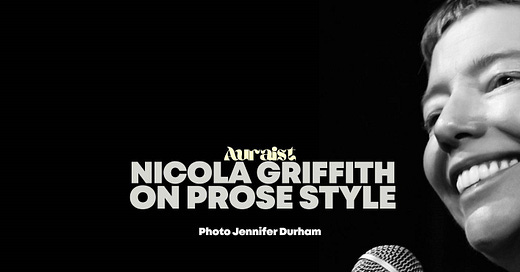Multi-award-winning speculative fiction author Nicola Griffith's guide to prose style
Plus the opening pages of Griffith's novel Spear
Keep reading with a 7-day free trial
Subscribe to Auraist: picking the best-written books to keep reading this post and get 7 days of free access to the full post archives.





